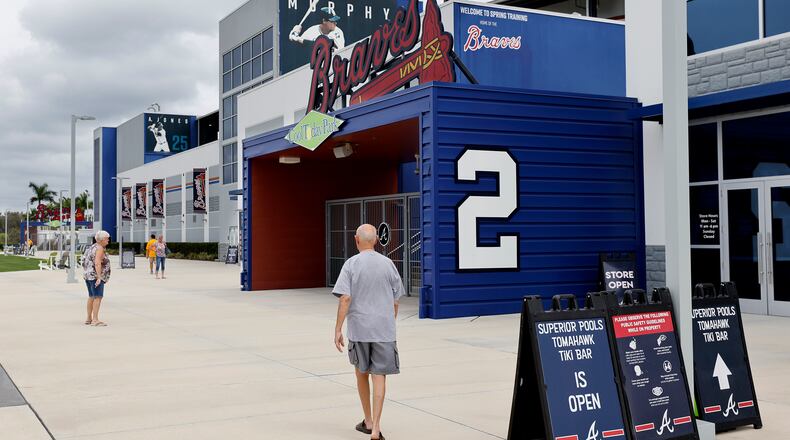Baseball’s new collective bargaining agreement will bring some significant changes to the game, on and off the field. Here’s a look at how five of the major components of the lockout-ending deal could affect the Braves this season and beyond:
1. LUXURY TAX
What changed: The level to which teams can spend on player payrolls before incurring penalties was increased from $210 million last year to $230 million this year and will rise to $244 million by 2026. The first three tiers of penalties are the same as in the past, but an even stiffer fourth tier was added for exceeding the threshold by $60 million or more. That is seen as MLB’s attempt to somewhat restrain deep-pocketed Mets owner Steve Cohen.
Impact on Braves: The Braves haven’t spent to the luxury-tax threshold since the late 1990s, when the concept was first implemented under a different methodology, and aren’t expected to do so anytime soon. (They closed last season with a major-league payroll of slightly under $150 million.) But the higher threshold may indirectly affect the Braves by making some of their bigger-spending competitors more aggressive, given another $20 million of spending room to work with before triggering a tax. It bears watching whether that comes into play in offers for free agent Freddie Freeman.
2. PLAYOFFS
What changed: The postseason field was expanded from 10 teams to 12, six in each league. The division champs with the two best records in each league will get byes in the first round. The other division champ and three wild-card teams in each league will play best-of-three opening-round series.
Impact on Braves: The expanded playoffs will mean more money for all teams, but the Braves aren’t short of revenue anyway ($568 million last year). It’ll be 20% easier to reach the postseason and potentially even more of a crapshoot once there. Under the new format, it would behoove the Braves to not only win the NL East, but to do so with a better record than at least one of the league’s other division champs.
3. DESIGNATED HITTER
What changed: Beginning this year, the National League finally and fully will adopt the designated hitter, which has been used in the American League for almost a half-century (since 1973). The DH previously was used by NL teams only for interleague games in AL stadiums and throughout the pandemic-shortened 2020 season.
Impact on Braves: They’ll lose the advantage of having one of baseball’s few competent-hitting pitchers, Max Fried, who had a .273 batting average last year. But the Braves have Marcell Ozuna, better as a DH than as an outfielder, already under contract for the next three seasons.
4. SALARY ARBITRATION
What changed: Nothing in terms of who’s eligible -- all players with at least three years of major-league service time until they become free agents, plus the top 22% by service time of players with between two and three years – but a new merit-based league-wide $50 million bonus pool ($1.67 million from each team) will be paid annually to the top young players not yet eligible for arbitration.
Impact on Braves: If the bonus pool had been in effect, Ronald Acuna would have received a $750,000 bonus for winning the NL Rookie of the Year award in 2018 and $1 million for finishing fifth in MVP voting in 2019. Mike Soroka would have gotten $500,000 for his runner-up finish in the 2019 Rookie of the Year vote. So the next young Braves star to make an immediate impact can expect to cash in on this Players Association victory.
5. MINIMUM SALARY
What changed: The major-league minimum, a big deal to the union because it (or close to it) is what most players are paid until they reach arbitration eligibility, was increased 23% from $570,500 last year to $700,000 this year.
Impact on Braves: With the game skewing younger, eight players on the Braves’ opening-day roster last year made within $30,000 of the minimum, including starting pitcher Ian Anderson. Such players this year will get a six-figure raise. Still, the additional cost to the club figures to be only around $1 million.
About the Author
Keep Reading
The Latest
Featured


